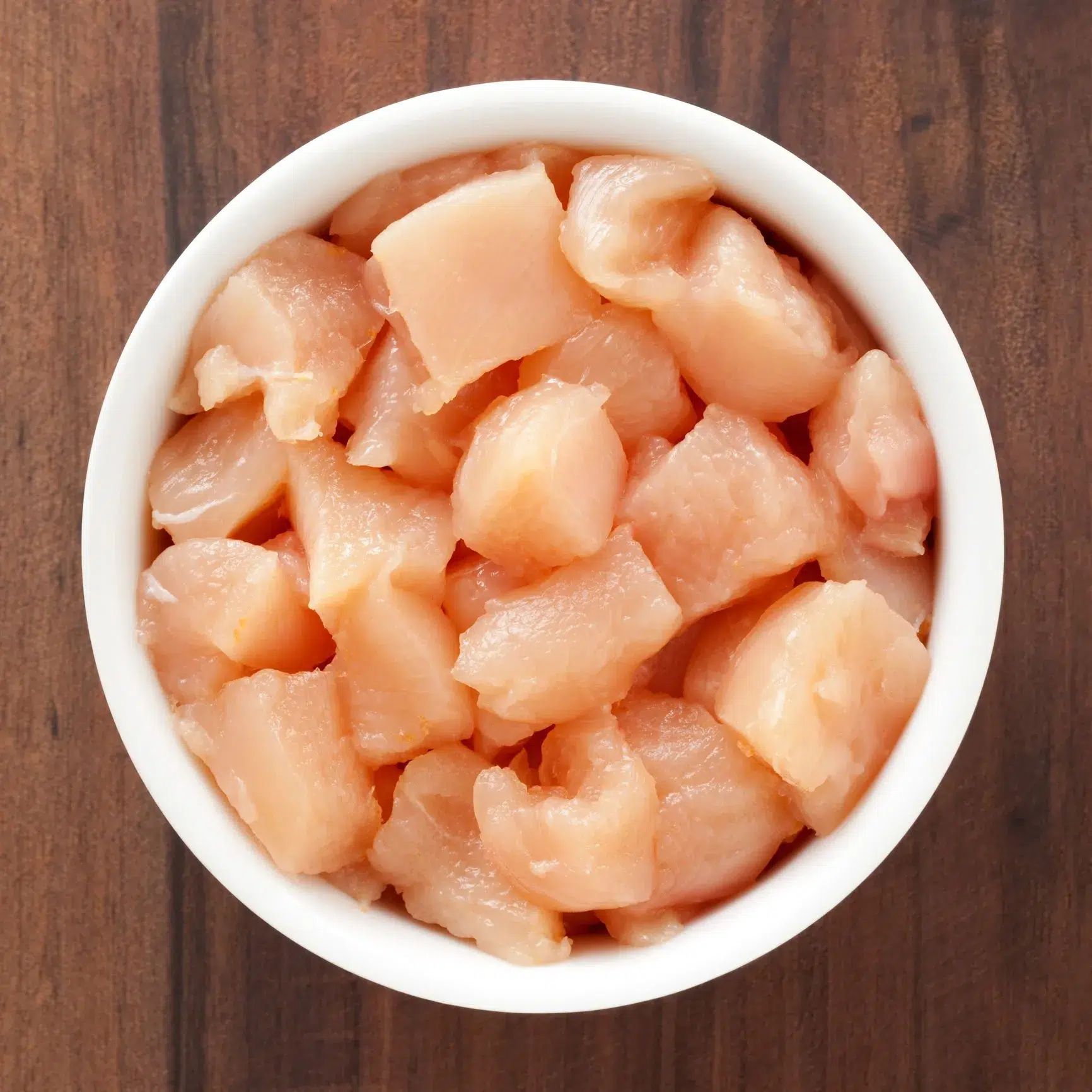How Long Can Ferrets Survive Without Food And Water?

Ever wondered how long ferrets can survive without food and water? Understanding these resilient creatures’ survival capabilities, such as cats, is crucial for their well-being.
Uncover essential insights that shed light on these adorable yet tenacious obligate carnivores’ unique traits and needs. Stay tuned to unravel the mysteries surrounding ferret care and welfare.
How Long Can Ferrets Go Without Food And Water?
Without food, a ferret can survive for about 24 hours before facing health issues. Water is essential for a ferret’s survival as they can become dehydrated quickly. Without water, a ferret may survive only up to 2-3 days. Always have fresh water available for your pet in a shallow dish or sipper bottle within easy reach.
According to a research done by PubMed Central on Feed consumption and food passage time in mink (Mustela vison) and European ferrets (Mustela putorius furo), The total digestive tract transit time was 3 hours (182 minutes) for european ferrets that were fed a meat-based diet which consisted of 66% moisture, 42 grams of dry matter per kg body weight and 49 grams of dry matter per kg body weight for female ferrets.(1)
While it’s anticipated that ferrets would generally experience brief transit times regardless of their diet, the impact of variations in dietary form and nutrient composition remains largely unstudied.
Ferrets are obligate carnivores, meaning they require meat-based diets. A lack of food can lead to hypoglycemia, weakness, and even death in severe cases. To prevent this, ensure your ferret has access to high-quality commercial ferret food or a mix of raw meat like chicken or turkey.
It’s important to monitor your ferret’s water intake daily since dehydration can be life-threatening for them. Signs of dehydration include lethargy, sunken eyes, dry gums, and loss of skin elasticity.
Ferret’s Digestive System
According to Biology And Diseases Of Ferrets 3rd Edition, Ferrets have a unique digestive system that is specialized for processing animal-based proteins and fats. Their digestive tract is relatively short, similar to other carnivores, but lacks a cecum and appendix.(2)
The large intestine appears as one long, undifferentiated organ without an external anatomic division between the ileum and colon
This anatomical structure is adapted for processing animal-based foods rather than plant matter like fruits and vegetables. Ferrets have evolved to thrive on diets rich in animal protein and fat, making it challenging for them to digest and derive essential nutrients from plant-based foods effectively.
The ferret’s digestive system is designed to process food quickly, with food passing through the stomach and small intestine in about 4-6 hours
This rapid digestion is due to the ferret’s high metabolic rate and the need to consume a diet high in animal protein and fat to meet their energy requirements. Ferrets have a relatively short intestinal tract, which allows for rapid absorption of nutrients but also means that they cannot store large amounts of food in their digestive system.
In summary, the ferret’s digestive system is adapted for a carnivorous diet, and they are not well-suited to digest plant-based foods like fruits and vegetables. Their rapid digestion and high metabolic rate require a diet rich in animal protein and fat to meet their energy needs.
How To Know If Your Ferret Isn’t Getting Enough Food?
To determine if your ferret is not getting enough food, you can look for several signs of malnutrition or undernutrition. These may include:
- Weight loss: If your ferret is losing weight despite maintaining a consistent diet, it may not be getting enough food or may have an underlying health issue that needs to be addressed.
- Poor coat condition: A healthy ferret should have a shiny, smooth coat. If your ferret’s coat appears dull, dry, or thin, it may not be getting the nutrients it needs.
- Lethargy: Ferrets that are not getting enough food may be less active and have less energy than healthy ferrets. They may also sleep more than usual.
- Weakness: Malnourished ferrets may have difficulty moving around or may be weak when they do move.
- Poor growth: If your ferret is a juvenile, it should be growing at a consistent rate. If it is not growing or is growing slowly, it may not be getting enough food.
- Digestive issues: Ferrets that are not getting enough food may have digestive issues such as diarrhea or constipation.
If you notice any of these signs in your ferret, it is important to consult a veterinarian. They can help determine if your ferret is not getting enough food and provide guidance on how to address the issue.
Frequently Asked Questions
Ferrets should not go more than 24 hours without food or water. They have a high metabolic rate and need regular meals to stay healthy. Dehydration can be particularly dangerous for ferrets, so access to fresh water is crucial at all times.
Signs of dehydration in ferrets include dry gums, lethargy, sunken eyes, loss of skin elasticity, and reduced urine output. If you suspect your ferret is dehydrated, seek veterinary care immediately as dehydration can be life-threatening.
Ferrets require a diet high in animal protein and fat. Commercial ferret foods or high-quality cat foods are recommended as they meet their nutritional needs. Avoid feeding them fruits, vegetables, dairy products, or sugary treats as these can cause health issues.
Adult ferrets should be fed 2-4 small meals throughout the day to mimic their natural eating habits. It’s important to provide fresh food daily and ensure they have access to clean water at all times. Monitor their weight and adjust portions accordingly.
If you suspect your ferret is dehydrated, offer them electrolyte solutions specifically formulated for animals or diluted chicken broth to help rehydrate them. Encourage them to drink water but seek immediate veterinary attention if their condition does not improve promptly.
Food: While some sources claim up to two weeks, it’s not recommended and highly detrimental to their health.
Water: Ferrets can survive up to 24 hours, but it’s extremely harmful and can lead to dehydration and potential organ failure.
High Metabolism: Requires frequent small meals to maintain energy and blood sugar, making them susceptible to hypoglycemia if deprived of food for even short periods.
Limited Water Storage: Lacks efficient water storage capabilities, making them more vulnerable to dehydration compared to other animals.
Temperature: Hot environments exacerbate dehydration.
Activity Level: Higher activity levels increase energy expenditure and water loss.
No, ferrets cannot significantly adapt their metabolism for extended survival without food and water.
Younger and weaker ferrets are more susceptible to the negative effects compared to healthy adults.
Rare individual cases exist, but these are exceptions and cannot be relied upon.
Hypoglycemia (low blood sugar)
Dehydration
Malnutrition
Organ damage
Death
Wild ferrets may have slightly better scavenging abilities and potentially higher tolerance to short periods of food scarcity, but are still vulnerable to dehydration and long-term consequences of food deprivation.
Yes. They might exhibit lethargy, weakness, loss of appetite, and increased vocalization.
Free-feeding: Provide fresh, high-quality food available at all times.
Multiple water sources: Offer multiple water bottles or bowls at different cage levels.
Regular cleaning: Clean and refill food and water sources daily.
Emergency plan: Have a plan for emergency access to food and water, including travel or power outages (portable water bottle and pre-portioned food).
Sources
VeryWell Animals uses high-quality sources, such as scientifically reviewed studies in its articles. Discover our unique approach to fact-checking and ensuring our content remains accurate and trustworthy.
- Feed consumption and food passage time in mink (Mustela vison) and European ferrets (Mustela putorius furo) – Pub Med Central
- Biology And Diseases of the Ferret 3rd Edition
Last Updated on 14 March 2024
Waman Nuka is a seasoned wordsmith and a passionate animal enthusiast with decades of experience in the world of animal care. With a deep love for all creatures great and small, Waman’s journey in the realm of animals started as a young boy exploring the lush forests surrounding his childhood home.


